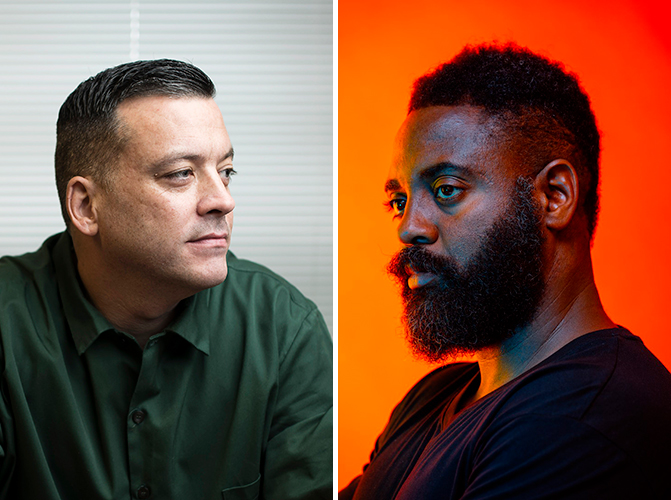John J. Lennon in conversation with Reginald Dwayne Betts for The New York Review of Books.
EXCERPT
“There’s something critically important that books do for us that we can’t get anywhere else — because so much of prison is trying to master the art of becoming.”
In 2001, Reginald Dwayne Betts was about five years into a nine-year sentence in a Virginia prison for a carjacking he’d committed at age sixteen. That was the year that I shot and killed a man on a Brooklyn street, when I was twenty-four years old. I am now twenty years into a sentence of twenty-eight years-to-life. In that time, I’ve become a journalist writing from prison. Since his release, Betts has become an acclaimed poet and attorney. His 2018 article for The New York Times Magazine about his journey from teenage carjacker to working lawyer won the National Magazine Award. His most recent collection of poetry, Felon, explores the post-incarceration experience; just last month, he was appointed one of the 2021 MacArthur fellows (an award commonly known as the “genius grant”).
I currently live in Sullivan Correctional Facility, a maximum security prison set in New York’s Catskill Mountains. It was a creative writing workshop in Attica, of all places, that led me toward my vocation. In 2019, I wrote a review of Felon and Betts saw it, responding in a tweet: “I’m certain no one has written anything about my writing and life that has hit me so hard in the gut.” With this connection, Dwayne and I subsequently became friends. (Currently, in his capacity as a lawyer, he is pursuing a clemency petition for me, among others.)
Through Betts, I have become involved in the initiative he created in 2019, Freedom Reads, to curate microlibraries and install them in prisons and juvenile detention centers across the United States and Puerto Rico. It’s a project close to his heart.
“I did time where knowledge was always obtained a book at a time,” Betts told me, when I called him recently, “and a lot of the knowledge was bootleg, things I’d later discard as absurd, things that sowed hate or envy or just misinformation.”
Dudley Randall’s anthology The Black Poets and John Edgar Wideman’s Brothers and Keepers were two books that came around on the cart when he was in solitary confinement. Those two will likely be among the titles in the five-hundred-book collections that Freedom Reads is putting together, the first to be installed in Massachusetts’s Norfolk (where Malcolm X once served time) and Concord, with five by the end of 2021, and Louisiana’s Angola soon to follow.
To read the full story subscribe to The New York Review of Books.
